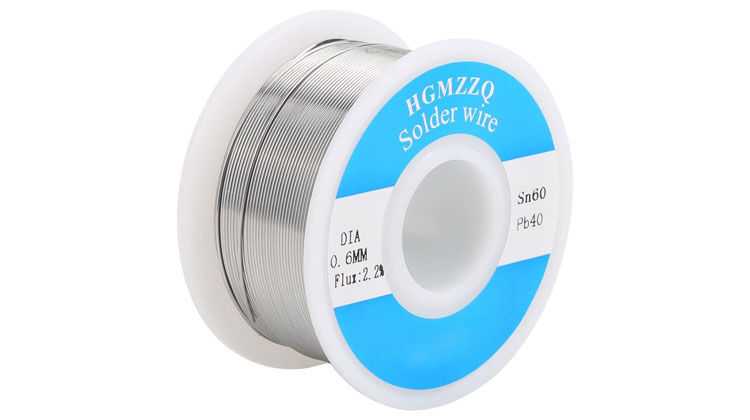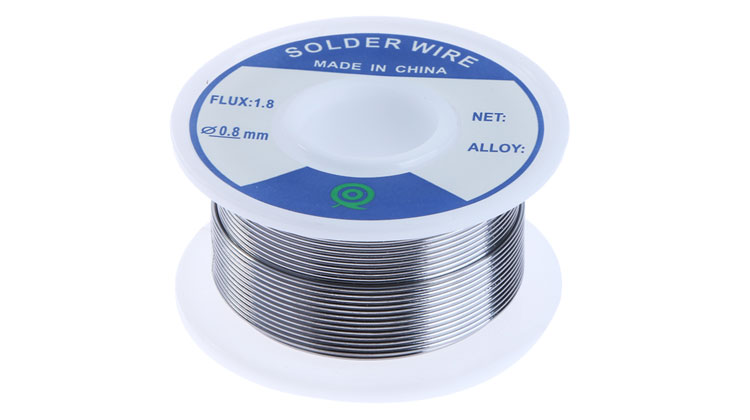Choosing the right solder can be a daunting task if you are a beginner in the world of soldering. There are many different types of solder available, and each type has unique characteristics and applications. To help you choose the best solder for your needs as a beginner, here is a brief overview of the different types of solder and the best solder for beginners.
One of the most common types of solder is tin-lead solder, which is composed of a mixture of tin and lead. This type of solder is relatively inexpensive and it is easy to use, which makes it a good choice for beginners. It is also a low-melting-point solder, which means that it does not cause damage to the base metal or surrounding components. Because of these characteristics, tin-lead solder is often used in electronics and electrical work, as well as in metalwork and jewelry making.

Another common type of solder is tin-silver solder, which is composed of a mixture of tin and silver. This type of solder is more expensive than tin-lead solder, but it is stronger and more durable. It is also a low-melting-point solder, which means that it is easy to use and does not cause damage to the base metal or surrounding components. Because of these characteristics, tin-silver solder is often used in applications where a strong and durable bond is required, such as in the automotive and aerospace industries.

If you are a beginner in soldering and looking for the best solder for your needs, then tin-lead solder is a good choice. This type of solder is relatively inexpensive and it is easy to use, which makes it a good choice for beginners. It is also a low-melting-point solder, which means that it does not cause damage to the base metal or surrounding components. By choosing tin-lead solder as a beginner, you can learn the basics of soldering and gain the skills and experience you need to move on to more advanced soldering techniques.
In addition to tin-lead and tin-silver solder, there are also other types of solder available, each with its unique characteristics and applications. For example, lead-free solder is a type of solder that does not contain any lead. It is becoming increasingly popular due to concerns about lead's environmental and health effects. Lead-free solder is more expensive than tin-lead and tin-silver solder, but it is a good choice for applications where lead-free solder is required by law or by industry standards.
Another type of solder is acid-core solder, which is a type of solder that contains a core of acidic flux. This type of solder is often used in plumbing and HVAC applications, where it is necessary to remove oxidation and other contaminants from the metal surfaces being joined. Acid-core solder is more difficult to use than other types of solder, so it is not recommended for beginners.
In short, if you are a beginner in the world of soldering, the best solder for your needs is tin-lead solder. This type of solder is relatively inexpensive and it is easy to use, which makes it a good choice for beginners. It is also a low-melting-point solder, which means that it does not cause damage to the base metal or surrounding components. By choosing tin-lead solder as a beginner, you can learn the basics of soldering and gain the skills and experience you need to move on to more advanced soldering techniques.
It is important to note that while tin-lead solder is a good choice for beginners, it is not the only option. Depending on your specific needs and requirements, other solder types may be better suited to your project. For example, if you are working on a project requiring a strong and durable bond, tin-silver solder may be a better choice than tin-lead solder. Or, if you are working on a project that requires lead-free solder, then lead-free solder may be the best choice.
In addition to choosing the right type of solder for your project, it is also important to use the solder correctly and safely. Soldering involves the use of high heat, which can be dangerous if not handled properly. To use solder safely, it is important to follow proper safety guidelines, such as wearing protective gear, keeping a fire extinguisher nearby, and properly maintaining and storing your soldering equipment.
In addition to choosing the right type of solder and using it safely and correctly, there are also other factors to consider when soldering as a beginner. For example, choosing the right soldering iron or other soldering tools for your project is important. Different types of soldering irons and other tools have different characteristics and features, and choosing the right tool for your needs is critical to the success of your project.
For example, a small, low-power soldering iron may be the best choice if you are working on a small project, such as soldering components on a circuit board. This soldering iron is easy to handle and maneuver, providing the precision and control needed for small projects.
If you are working on a larger project, such as soldering pipes or other large metal surfaces, then a larger, high-power soldering iron may be the best choice. This type of soldering iron generates more heat, which is needed to join large metal surfaces. It is also more powerful and durable, which is important for larger projects.
In addition to choosing the right soldering iron or other tools, it is also important to choose the right flux and other accessories for your project. Flux is a chemical compound used to clean and prepare the metal surfaces being joined, an important part of the soldering process. Different types of flux are designed for different types of metal and soldering, so it is important to choose the right flux for your project.
In conclusion, there are many factors to consider when soldering as a beginner, including the type of solder, the type of soldering iron or other tools, and the type of flux and other accessories. By choosing the right solder, soldering iron, and flux for your project and using these tools correctly and safely, you can learn the basics of soldering and gain the skills and experience you need to move on to more advanced soldering techniques.
Contact: Mr. Li
Phone: (0086) 138 24254 321
E-mail: atetool@atetool.com.cn
Add: 5F, 1-2# Building, Tongfuyu Industrial Zone, Aiqun Rd, Shiyan Subdistrict, Bao'an, Shenzhen, 518108, China